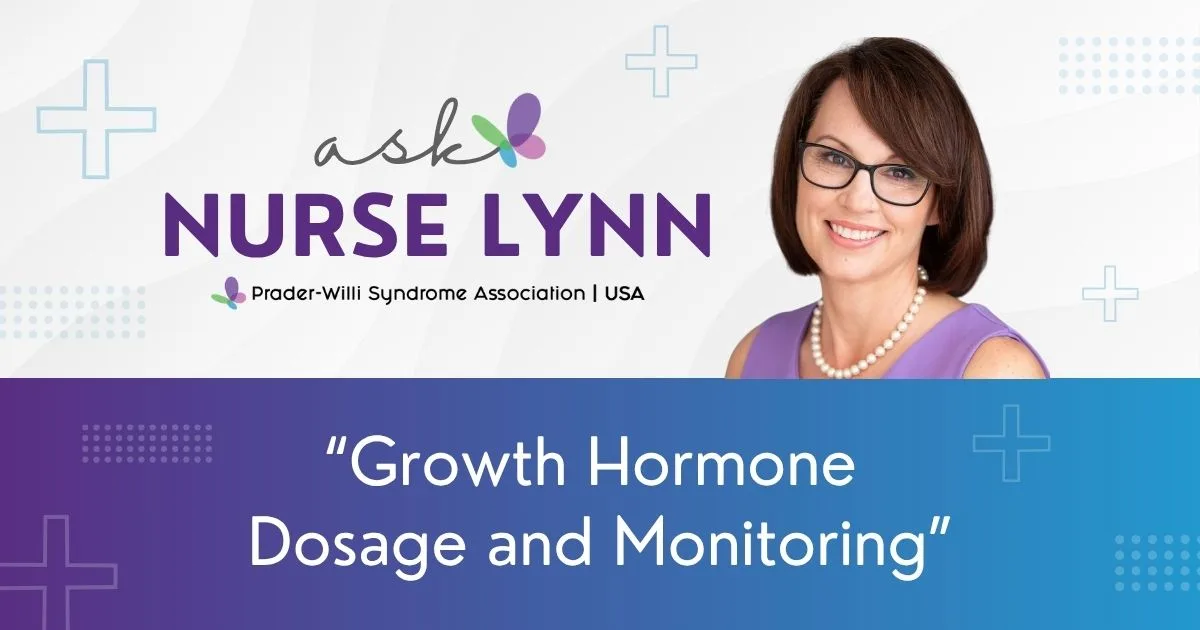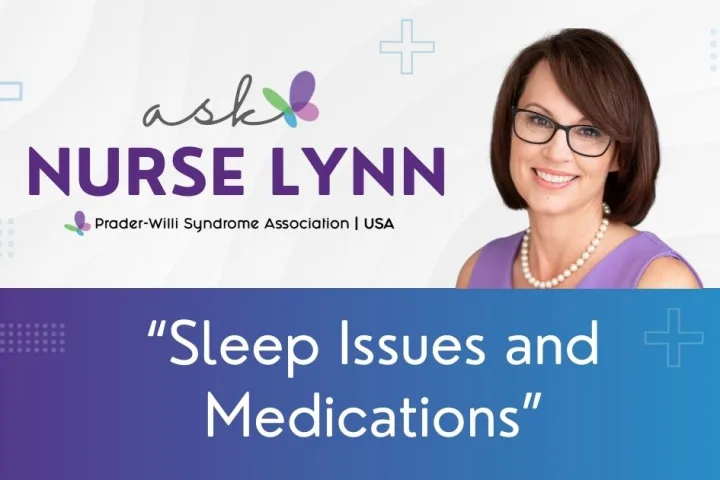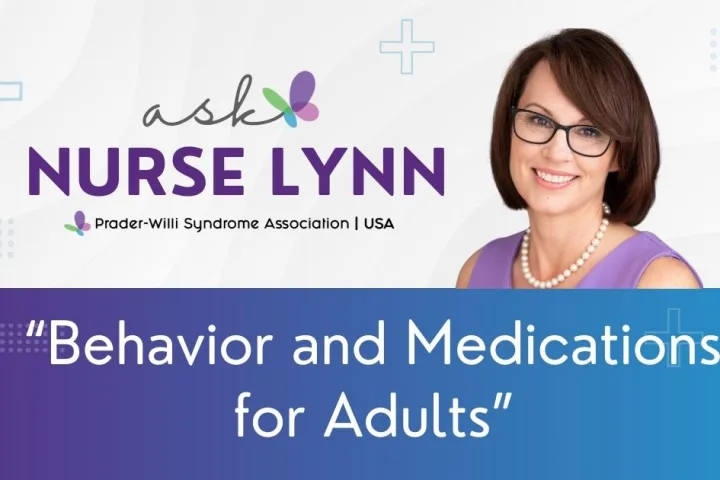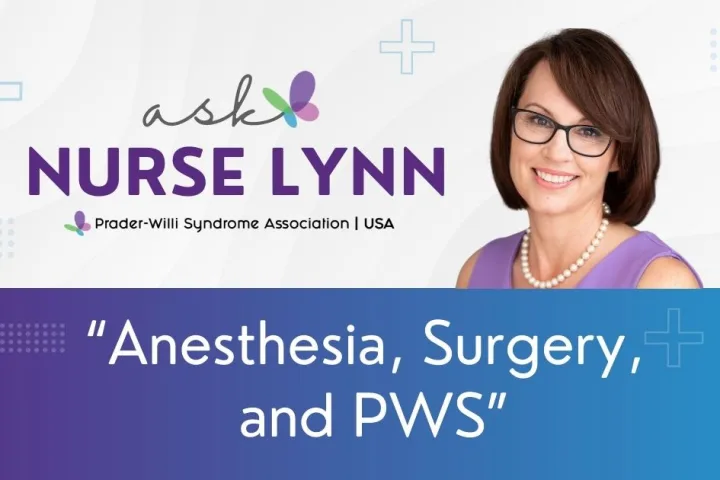Question:
Male, 6 years old, UPD subtype
I am in Ireland. I am really concerned that my child is not receiving proper dose of GH. He has been on 0.6mg for over 2 years now and his weight is increasing he’s above 99 centile now and I am really stressed because of it. Ireland is a small country and they don’t have proper experience of kids with PWS. My child is suffering. I would highly appreciate if I can get any help.
Nurse Lynn’s Response:
I can understand how stressful this is for you, especially since growth hormone treatment is such an important part of care in PWS. Unfortunately, there really is no “one-size-fits-all” dose for GH. The dose must be individualized for each child.
For children with PWS, the typical starting dose is about 0.20 to 0.25 milligrams per kilogram of body weight per week, divided into daily injections. Many specialists begin at around 0.24 mg/kg/week, though sometimes doctors start a little lower and increase slowly if it is safe to do so. What matters most is that the dose is adjusted over time based on how the child is responding. Doctors don’t only look at the number on the scale, they monitor growth velocity (how quickly your child is growing taller), changes in body composition (muscle vs. fat), blood tests such as IGF-1 and IGFBP-3, and overall health and well-being.
It is also very important that GH treatment is monitored regularly. Children with PWS should have follow-up visits that include checking height, weight, bloodwork, spine health (to look for scoliosis), and general progress. Side effects such as swelling, headaches, joint pain, or changes in sleep can happen, which is why careful follow-up is critical.
Growth hormone can bring many benefits: it helps strengthen muscles, improves energy levels, supports bone health, and makes physical activity easier. However, it does not take away the drive to eat or solve food-related challenges. This is why GH must be paired with a structured food environment, careful nutrition management, and regular physical activity.
Organizations such as IPWSO which can sometimes help connect families with clinicians who are experienced with GH treatment in PWS in your area or provide further medical guidance from a physician.
Resources:
https://ipwso.org/how-we-can-help/ask-a-professional/
https://www.pwsausa.org/wp-content/uploads/2024/01/Growth-Hormone-booklet-third-Edition_FINAL.pdf
Do you have a question for Nurse Lynn? Submit your question here:
Share this!





 Perry A. Zirkel has written more than 1,500 publications on various aspects of school law, with an emphasis on legal issues in special education. He writes a regular column for NAESP’s Principal magazine and NASP’s Communiqué newsletter, and he did so previously for Phi Delta Kappan and Teaching Exceptional Children.
Perry A. Zirkel has written more than 1,500 publications on various aspects of school law, with an emphasis on legal issues in special education. He writes a regular column for NAESP’s Principal magazine and NASP’s Communiqué newsletter, and he did so previously for Phi Delta Kappan and Teaching Exceptional Children. Jennifer Bolander has been serving as a Special Education Specialist for PWSA (USA) since October of 2015. She is a graduate of John Carroll University and lives in Ohio with her husband Brad and daughters Kate (17), and Sophia (13) who was born with PWS.
Jennifer Bolander has been serving as a Special Education Specialist for PWSA (USA) since October of 2015. She is a graduate of John Carroll University and lives in Ohio with her husband Brad and daughters Kate (17), and Sophia (13) who was born with PWS. Dr. Amy McTighe is the PWS Program Manager and Inpatient Teacher at the Center for Prader-Willi Syndrome at the Children’s Institute of Pittsburgh. She graduated from Duquesne University receiving her Bachelor’s and Master’s degree in Education with a focus on elementary education, special education, and language arts.
Dr. Amy McTighe is the PWS Program Manager and Inpatient Teacher at the Center for Prader-Willi Syndrome at the Children’s Institute of Pittsburgh. She graduated from Duquesne University receiving her Bachelor’s and Master’s degree in Education with a focus on elementary education, special education, and language arts. Evan has worked with the Prader-Willi Syndrome Association (USA) since 2007 primarily as a Crisis Intervention and Family Support Counselor. Evans works with parents and schools to foster strong collaborative relationships and appropriate educational environments for students with PWS.
Evan has worked with the Prader-Willi Syndrome Association (USA) since 2007 primarily as a Crisis Intervention and Family Support Counselor. Evans works with parents and schools to foster strong collaborative relationships and appropriate educational environments for students with PWS. Staci Zimmerman works for Prader-Willi Syndrome Association of Colorado as an Individualized Education Program (IEP) consultant. Staci collaborates with the PWS multi-disciplinary clinic at the Children’s Hospital in Denver supporting families and school districts around the United States with their child’s Individual Educational Plan.
Staci Zimmerman works for Prader-Willi Syndrome Association of Colorado as an Individualized Education Program (IEP) consultant. Staci collaborates with the PWS multi-disciplinary clinic at the Children’s Hospital in Denver supporting families and school districts around the United States with their child’s Individual Educational Plan. Founded in 2001, SDLC is a non-profit legal services organization dedicated to protecting and advancing the legal rights of people with disabilities throughout the South. It partners with the Southern Poverty Law Center, Protection and Advocacy (P&A) programs, Legal Services Corporations (LSC) and disability organizations on major, systemic disability rights issues involving the Individuals with Disabilities Education Act (IDEA), Americans with Disabilities Act (ADA), and the federal Medicaid Act. Recently in November 2014, Jim retired.
Founded in 2001, SDLC is a non-profit legal services organization dedicated to protecting and advancing the legal rights of people with disabilities throughout the South. It partners with the Southern Poverty Law Center, Protection and Advocacy (P&A) programs, Legal Services Corporations (LSC) and disability organizations on major, systemic disability rights issues involving the Individuals with Disabilities Education Act (IDEA), Americans with Disabilities Act (ADA), and the federal Medicaid Act. Recently in November 2014, Jim retired.